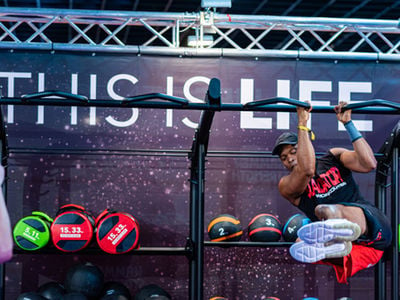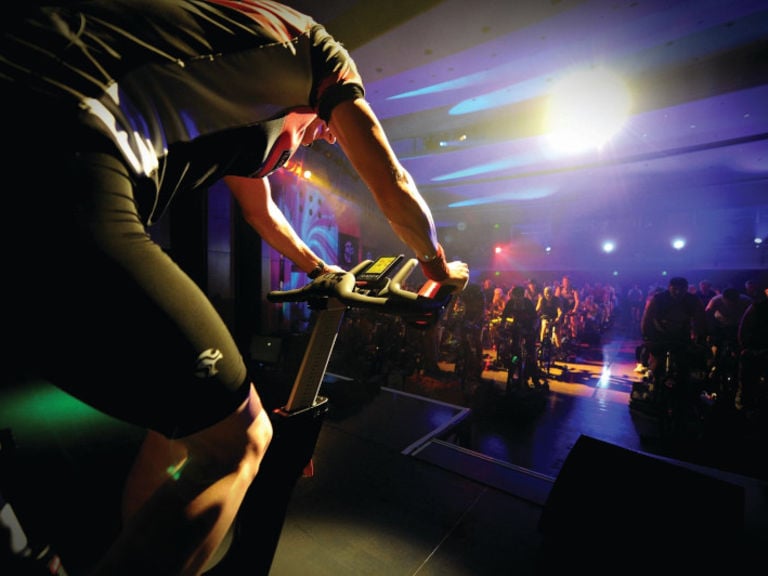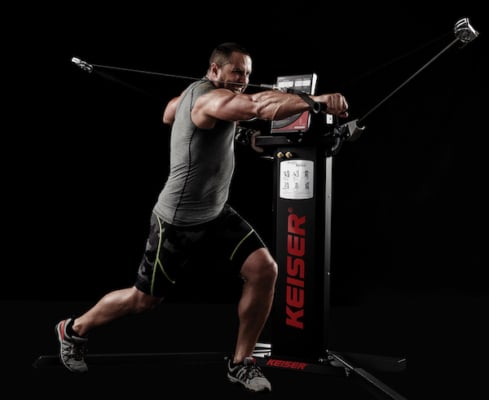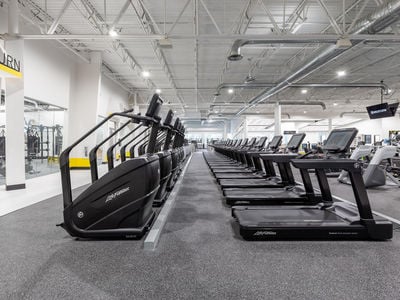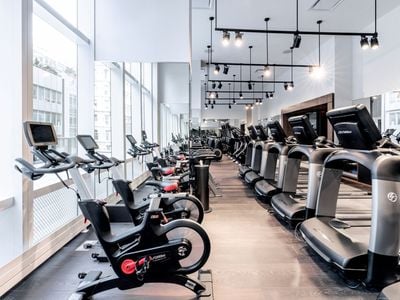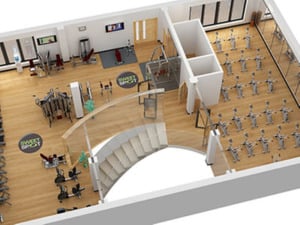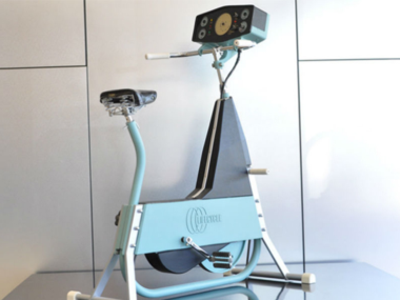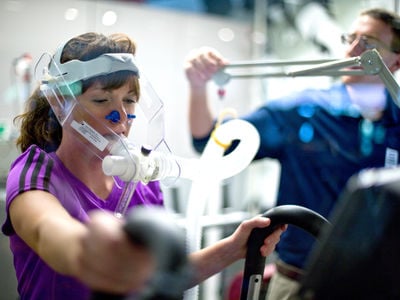Bench press exercises are fundamental to any strength training regimen. They target multiple muscle groups, enhancing both endurance and muscle coordination.
If you’ve been regularly engaging in strength training but find yourself wondering, “Why is my bench press so weak?” it may be time to reevaluate your approach.
In this guide, we’ll explore common reasons why your bench press progress isn’t improving and offer practical tips on how to increase bench press strength.
Why isn’t my bench press improving?
1. Improper technique
Proper form is essential, whether you’re performing a barbell or dumbbell bench press. Here are some common form mistakes you might be making:
- Wrong foot position
For optimal stability and power during the lift, your feet should be firmly planted on the ground. This helps maintain balance and generates the necessary force to drive the weight upward.
Beginners often make the mistake of lifting or shifting their feet as the weight increases, which can lead to reduced control and potential injury.
- Incorrect grip
The width of your grip affects how much weight you can effectively lift. A grip that is too wide reduces the involvement of your triceps, limiting the weight you can handle. On the other hand, a grip that is too narrow shifts the focus mainly to your triceps instead of allowing your chest muscles to do most of the work.
If you’re looking to lift more weight on the bench press, aim to position your grip slightly wider than the width of your shoulders.
Additionally, pay attention to how you hold the bar. Ensure that it rests low on your palms rather than near your fingers. Holding the bar too high on the hand can decrease your control and power output and might even cause wrist injuries.
- Loose back syndrome
Before lifting the bar off the rack, retract your scapulae or shoulder blades. This action locks your shoulders in position and establishes a strong, secure connection with the bench. As a result, you’ll have a solid platform from which to execute your press effectively.
- Bouncing the bar off your chest
Bouncing the bar off your chest not only cheats the intended muscle work but also risks injury to your rib cage. If you find yourself relying on a bounce to complete a rep, it’s a sign that the weight may be too heavy. Reduce the weight to a manageable level where you can perform each rep correctly and safely.
2. Lack of variation
If your bench press progress has stalled, it might be due to a lack of variation in your routine. When you perform the same exercise repeatedly, your muscles adapt to the demands, which can lead to a plateau in improvement. To break through this barrier, consider diversifying your workouts.
To enhance your bench press performance, consider adding exercises that focus on strengthening your chest, shoulders and triceps. Include movements like dips, push-ups and dumbbell presses in your routine.
Altering the angle of the bench, the amount of weight you lift or your grip width can also stimulate your muscles differently. By keeping your workouts dynamic, you ensure continuous development and maintain your motivation.
3. Lack of intensity
Building muscle and increasing strength requires consistent effort and dedication. In addition to following your training plan, approach each session with the necessary intensity. This means actively engaging with each rep, pushing through the discomfort of muscle fatigue, and striving to exceed your previous limits.
Manipulate the speed of your reps to increase tension in your muscles. Try gradually increasing the weights as you grow stronger, always ensuring that you can manage them with good form.
4. Insufficient rest and recovery
Working out causes microscopic tears in your muscle tissues. It’s during periods of rest that your muscles heal and strengthen themselves.
Overtraining can lead to fatigue, burnout and even injury, which may further delay your progress. The closer you lift to your one-rep max (1RM), the longer your recovery time should be. For heavy workouts, a two to four-minute rest between sets is advisable.
A general guideline is to allow 24 to 48 hours of rest before training the same muscle groups again. Additionally, staying hydrated and getting sufficient sleep allow your muscles to repair and grow.
How to improve bench press performance
If you’re wondering how to get a stronger bench press, consider adopting these best practices:
- Prioritise form over weight
Always perfect your form before increasing the weight. Proper form ensures effective muscle engagement and sets a solid foundation for future gains.
- Incorporate accessory exercises
Accessory exercises help enhance performance in a compound exercise. Dumbbell chest presses, pull-ups and incline barbell presses can help target and strengthen the supporting muscle groups.
- Opt for pre-workout dynamic stretching
Performing static stretches before a workout may decrease muscle elasticity, leading to weaker muscles. To better prepare for weightlifting, opt for dynamic stretches, such as lunges with a twist, arm circles, chest hugs and push-ups.
To completely maximise your time on the bench, consult a professional. This way, you can get advice tailored to your needs and avoid strain or injury.
Improve bench press techniques with Life Fitness
Using the right equipment is crucial for enhancing bench press performance. High-quality benches offer stability and accommodate various grip widths and angles, resulting in precise movements.
At Life Fitness, we offer a range of exercise benches that meet the highest standards of durability and performance. Explore our selection of workout equipment ideal for both home gyms and commercial facilities.
Place your order online or contact our team to learn more about our products.


